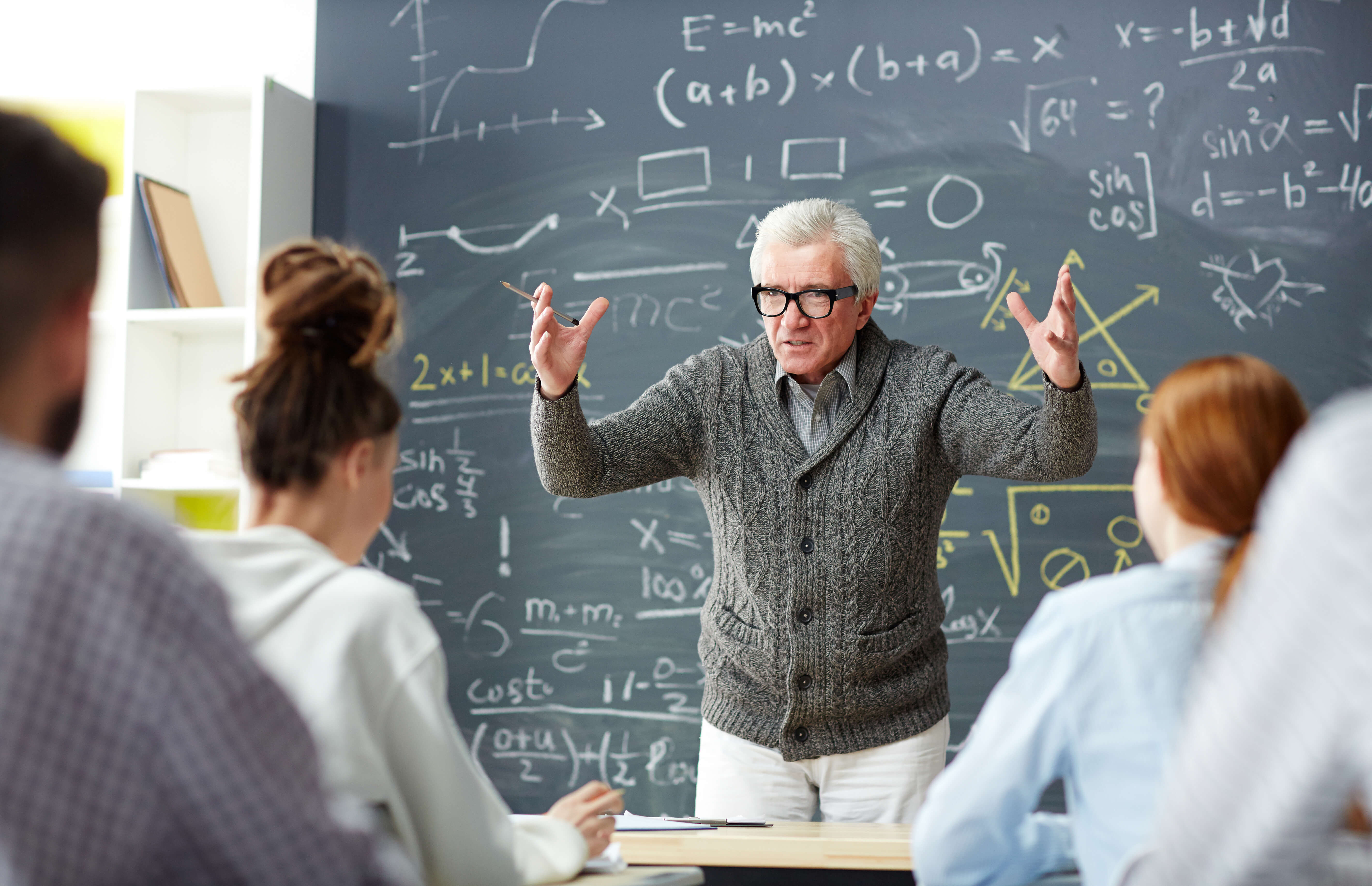Professor: Working with Big Bang and ecosystems should make youth tremble
Science has an entirely overlooked educational capacity – to help young people forming their identity. Therefore, science deserves more than the ancillary role that it plays today. Middle and high school teachers should open up young people's eyes to the personal and existential potential of the natural sciences – in part, because it may lead to greater interest in science programmes, argues a professor from the University of Copenhagen.

Shakespeare, Kant, Rembrandt and the Punic Wars. The humanities play a dominant role in our traditional conception of what Bildung is and in its purpose of making young people well-rounded.
Bildung has been a central concept in Danish primary and secondary schools for more than two-hundred years. But it is only since 2000 that the role of science in Bildunghas come into focus. Nevertheless, science is seen as an appendage, something secondary that is justified by the fact that it is knowledge one needs in order to solve societal problems and engage in democratic debates. It is here that we underestimate the educational potential of natural science. In the words of Professor Lars Ulriksen of the University of Copenhagen’s Department of Science Education:
"The prevailing wisdom is that science education should equip a person to be able to do something 'outwardly'. This is reflected in primary and secondary school curricula. That scientific knowledge should be used to be able to thoroughly comprehend arguments about climate models and nuclear power, for example, or to gain respect for nature and the environment, which in turn can be used to promote sustainability. And this is important, for certain. But the personal potential is entirely overlooked." In a research article in the Danish Mathematics and Scientific Education journal MONA, Ulriksen argues for precisely this view.
"So, there is an aspect of educational understanding not covered by the way professionals and educators currently view scientific education: namely, the part which deals with the formation of the individual through self-reflection and looking inward – where one asks questions like: Who am I? What kind of world am I in? Who am I in this world?" says Ulriksen.
Can open teenagers' eyes up to science
As for pondering life’s more philosophical questions, the natural sciences definitely have something to offer. According to Ulriksen,
"There is plenty of material that can be used to make young people tremble. Astrophysics is an obvious area, with topics like the Big Bang and the infinity of the universe. In mathematics and physics, a person may experience that they can analyze themselves to objective truths, that not all things are negotiable. In biology, our position in the ecosystem can evoke thoughts about a whole that we humans are part of. For example, how might it change our perception of identity to consider that our cells are constantly being broken down and restored? Is one always the same after all? These kinds of existential questions can help shape an individual on a personal level," he says.
If this aspect of science is put into play, it has potential with regards to the personal, introspective part of Bildung, as well as with regards to young people gaining a more nuanced view of science education. Lars Ulriksen points out:
"We know that there are problems with maintaining interest in science classes and the natural sciences among youth once they reach adolescence. It is usually said that they then begin to take a greater interest in themselves as human beings and want to find out more about psychology in particular. If we opened their eyes to the fact that science can actually give rise to this kind of subjective consideration, we might be able to capture the attention of some of the students that we are not yet reaching," says Lars Ulriksen.
Call out to teachers
The ball is thus being placed into the court of middle and high school teachers. They are the ones who are the first to see the potential of this side of science, which, according to Lars Ulriksen, can make students self aware in an altogether different way than the humanities can.
"After all, there is no automatic formative outcome simply by reading every word of Hamlet or The Merchant of Venice. It's about processing – about opening oneself up to the material and working to allow it in. In the humanities, it is just implemented more and is a more integrated aspect of teachers’ understandings. So, it's about sharpening our awareness that this is a relevant aspect of science education as well," he says.
Lars Ulriksen hopes that professionals will begin approaching the profession with this in mind:
"I don't think that all scientific material is suitable for this. But I encourage educators and textbook authors – when selecting material, topics or examples – to ask themselves: Is there anywhere here where I can get my students to work with aspects of a particular subject that open up big identity-forming questions? And can I, as a teacher, ask questions that invite students to relate science to themselves as human beings?"
According to Ulriksen, this is where the type of teaching can make a difference:
"Inquiry-based teaching would probably be useful here. That the teaching is organized in such a way that students work less with ready-made closed questions and answers and more with the opportunity to investigate things, and even ask questions with a sense of wonder that propels them to pursue their own curiosities. There are certain experiences and thought processes that work best when open-ended," Professor Ulriksen concludes.
Contact
Lars Ulriksen
Professor
Department of Science Education
University of Copenhagen
ulriksen@ind.ku.dk
+45 35 32 03 38
Maria Hornbek
Journalist
Faculty of Science
University of Copenhagen
maho@science.ku.dk
+45 22 95 42 83
